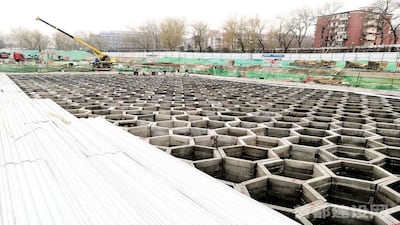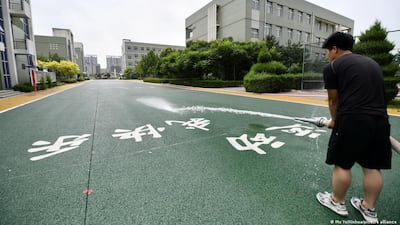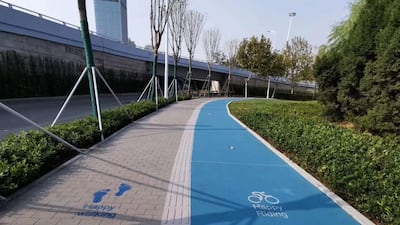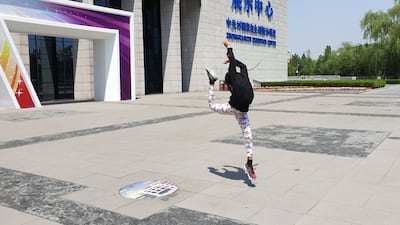When you think of regions afflicted by flooding and heavy rainfall, the Middle East may not be the first one that springs to mind.
That said, recent floods that brought Fujairah and Muscat in Oman to a standstill could soon become a regular occurrence, experts have warned.
Part of the solution to curb the fallout from flash flooding could be to transform cities in the region into what essentially amounts to giant sponges, allowing water to be drained away safely.
Leading voices in the sector believe it could be the answer to a problem that will only become more frequent due to the onset of climate change and rising global temperatures.
WSP Middle East
“We need to take climate change seriously,” said May Faraj, senior advisory director for environment and sustainability at engineering consultants WSP Middle East.
"The warmer the air gets here, the more intense the precipitation will be.
“We are a region that has lots of humidity and high temperatures, and that has the potential to result in episodes of extreme storms.
“It won’t happen immediately but it is going to happen.”
She said the sponge city model was one that would work well in the Middle East.
The term is used to describe urban areas with abundant natural areas such as trees, lakes and parks, or other good designs intended to absorb rain and prevent flooding, according to the World Economic Forum (WEF).
Cities that have already adopted the model through improved drainage systems, inner city gardens and plant-edged sidewalks include Cardiff in the UK, Shanghai in China and New York in the US.
One of the major benefits of sponge cities is they hold water in rivers, greenery and soil, making them more resilient to droughts, which could be a key appeal in the Middle East, said Ms Faraj.
“The Middle East has a water scarcity issue and this model would help tackle that,” she said.
“It is easier to collect the water that has been naturally absorbed into storage units in the ground rather than seeing a lot of it being lost to evaporation.
“This water can then be filtered and reused.”
Capturing urban water

Natural solutions to absorbing urban water are 50 per cent more affordable than man-made alternatives, as well as being 28 per cent more effective, according to a recent WEF report.
One of the major stumbling blocks to the wider adoption of the model has been the perception it would be prohibitively expensive to install new drainage systems across cities.
However, that is not necessarily the case, said Ms Faraj.
“Cost is definitely an issue but the beauty of this system is you can retrofit a lot, so you don’t have to completely rip up everything you already have in place,” she said.
“It has already been implemented in Hong Kong, Singapore and New Zealand, and they have had a lot of success stories already.”
Another expert said the heavy flooding witnessed recently in Fujairah and Muscat could have been alleviated by the creation of flood plains — low-lying areas that can absorb water.
“You could have a storage facility every few kilometres that would absorb excess water for up to a decade, keeping it clean the whole time,” said Chandra Dake, chief executive of Dech Rechsand, a Dubai company specialising in sustainable solutions.
“They can vary in size, but you can build them as big as soccer pitches if you need to. In the event of heavy rainfall, they would act as catchment areas.”
One solution is to use permeable alternatives when it comes to drainage systems.
Mr Dake suggested systems could be overhauled with permeable materials.
An example of this is curbs made from sustainable materials such as sand rather than concrete, which would allow the water to be absorbed directly into the ground.
“There is a perception the [Middle East] doesn’t need to worry about creating defences against flooding because it happens here so rarely,” said Mr Dake.
“Recent events and the onset of climate change are forcing us to rethink those views.
“We anticipate we will see pilot sponge city projects in the region that will increase in numbers.”








